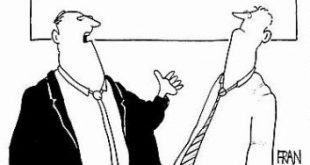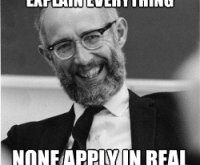Next installment. Clint invites comments and constructive criticism pre-publication.Clint Ballinger1000 Castaways, Chapter 2: System Two
Read More »Finland’s Universal Basic Income experiment — an evaluation
Finland’s Universal Basic Income experiment — an evaluation [embedded content] Results on the first year of the Finnish UBI experiment will become available in a couple of months, and a final report — covering the whole two-year time-span — is scheduled for publication in 2020.
Read More »Knut Wicksell — le origini della Teoria Monetaria Moderna
Knut Wicksell — le origini della Teoria Monetaria Moderna Molti economisti mainstream sembrano pensare che l’idea alla base della Teoria Monetaria Moderna sia nuova e nasca da strane idee economiche. Nuova? Strane idee? Che ne diciamo di leggere uno dei grandi fondatori dell’economia neoclassica – Knut Wicksell. Questo è ciò che Wicksell scrisse nel 1898 sui “sistemi di puro credito” in Interesse Monetario e Prezzi dei Beni (Geldzins und Güterpreise), 1936...
Read More »Clint Ballinger — 1000 Castaways, Chapter 1: System One
"A FLEET OF A THOUSAND COLONISTS are blown off course for weeks by a series of violent cyclones, eventually crashing onto the reefs of a large uncharted island. All of their ships and provisions are lost to sea. They wash ashore, all surviving the stormy night. As morning breaks they begin their search for water and possible food sources."The survivors struggle in this foreign land at first. They collect crabs at the rocky tideline, forage along the dense forest-edge, and weave simple palm...
Read More »IPA’s weekly links
Guest post by Jeff Mosenkis of Innovations for Poverty Action My IPA colleagues have a series of blog posts about our experience moving evidence into policy. The first lays out the org’s strategic ambition for what we plan on doing differently over the next several years. The second is on how to get non-research-oriented partners (like governments and NGOs) involved in the research process from the start to make sure they have ownership and the questions address their needs. The third is...
Read More »Clint Ballinger — 1000 CASTAWAYS: Fundamentals of Economics — Introduction
I know people would have clicked through to it from the last post, but Iwanted to have the Table of Contents as a separate post. Clint Ballinger1000 CASTAWAYS: Fundamentals of Economics–Introduction
Read More »Paul Krugman — a methodological critique
Paul Krugman — a methodological critique Alex Rosenberg — chair of the philosophy department at Duke University and renowned economic methodologist — has an interesting article on What’s Wrong with Paul Krugman’s Philosophy of Economics in 3:AM Magazine. Writes Rosenberg: Krugman writes: “So how do you do useful economics? In general, what we really do is combine maximization-and-equilibrium as a first cut with a variety of ad hoc modifications reflecting...
Read More »The Fracturing of Globalization: Implications of Economic Resentments and Geopolitical Contradictions
The last forty years have witnessed a third wave of globalization which can be termed “neoliberal globalization”. Now, there are indications that the era of neoliberal globalization might be drawing to a close, as evidenced by the trade war between the US and China. This paper argues the fracturing of neoliberal globalization reflects the growing […]
Read More »One of the Fundamental Differences Between Modern Monetary Theory and New Keynesian Economics
With Modern Monetary Theory (MMT) making inroads in the public policy debate, some New Keynesians have transitioned from ignoring or dismissing the approach to engaging with it. This is healthy for both sides. There has been a tendency, though, to make “we’ve known it all along” type statements. A comprehensive response to the “nothing new” claims is provided by Bill Mitchell in a recent three-part series of posts (part 1, part 2 and part 3). My focus here is narrower and concerns a view...
Read More »Is ‘modern’ macroeconomics for real?
Is ‘modern’ macroeconomics for real? Empirically, far from isolating a microeconomic core, real-business-cycle models, as with other representative-agent models, use macroeconomic aggregates for their testing and estimation. Thus, to the degree that such models are successful in explaining empirical phenomena, they point to the ontological centrality of macroeconomic and not to microeconomic entities … At the empirical level, even the new classical...
Read More » Heterodox
Heterodox



